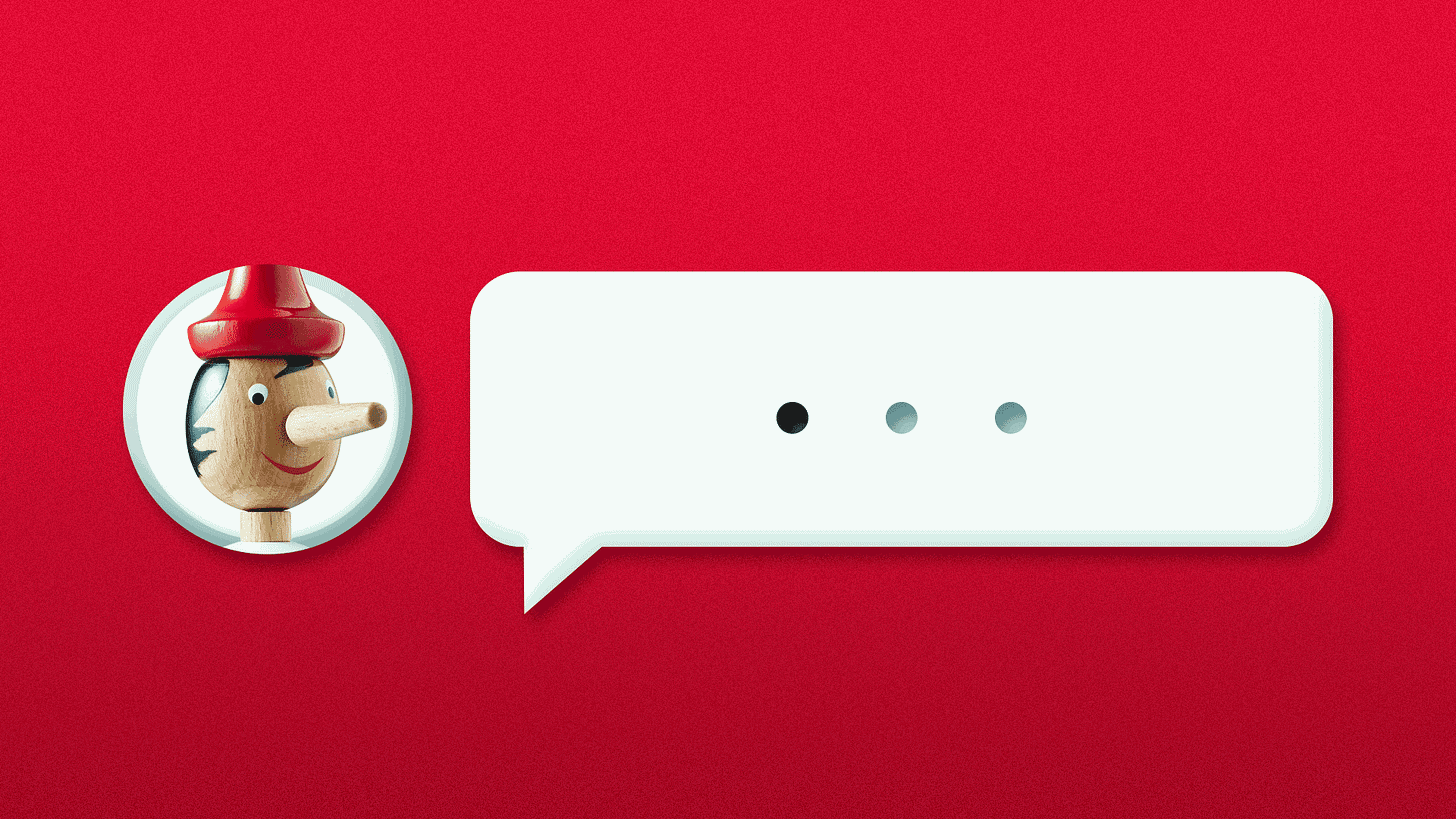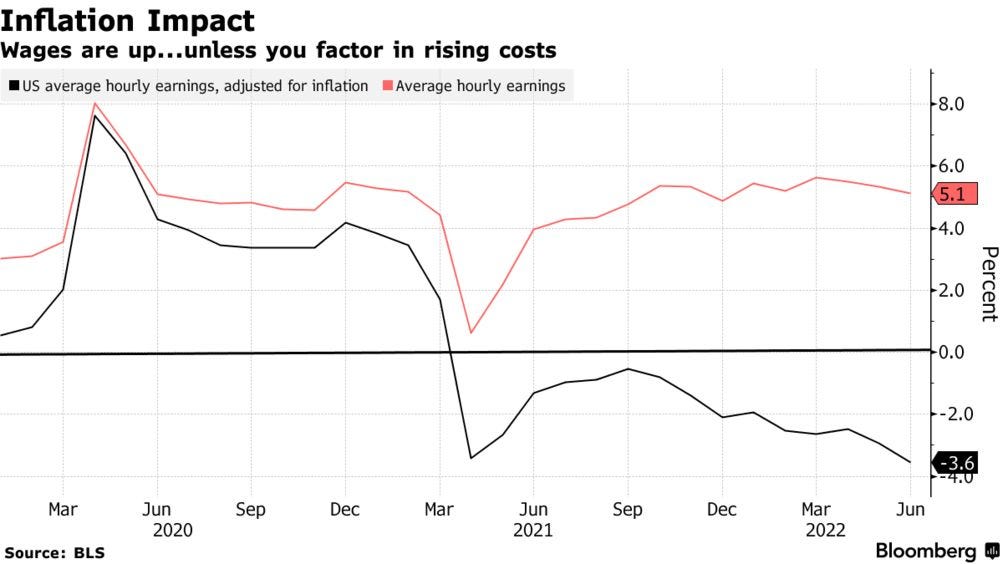I think we can agree that despite all the things that went wrong in 2022, it was still a bit better than 2021. Should I ruin 2023 for you then? Here’s what I think will change the world this year:
1. This will be the year artificial intelligence goes mainstream
For the first time ever, one of my students submitted a final paper written mostly by artificial intelligence. It was remarkably … unremarkable. In fact, the paper’s blandness is what set it apart and allowed me to determine that it wasn't the students’ own work.
I bet I’m going to see more of these papers. We already deal with simple AI, from annoying phone tree dialogues to the little chat bubble on websites, but this year we will witness an onslaught of AI-generated content and interactions that will be indistinguishable from human-generated content.

Using AI to generate term papers is relatively trivial. Using it churn out propaganda is terrifying, especially at scale. Political operatives are already starting to train AI to undermine fundamental institutions and norms. AI is also notorious for reflecting the societal biases of its programmers: from health sensors that favor white skin to financial algorithms that penalize Latino and Black families.
Our writing is beautiful and bad, disorganized and sublime - like us. Artificial intelligence takes this content and makes it generic - accurate but bland.
Here’s the kicker: to ensure it is accurately responding to human queries, AI tends to play it safe. Today, almost all of the content that AI models are learning from has been written by humans. Our writing is beautiful and bad, disorganized and sublime - like us. AI takes this content and makes it generic - accurate but bland. But as more bland AI-written content begins to flood the web two things are likely to happen:
Less people will want/need to write themselves, leading to a deficit in our collective writing skills; and
With a dwindling amount of human-generated content and an increasing amount of AI-generated content, we could head towards a slow, but inevitable downward spiral wherein AI generated content is used by AI to generate more content. An AI-plowed rut of blandness.
Ok that was a downer. There are lots of positives here too. For instance, AI can also be a great equalizer. Imagine consulting a chat bot that can provide accurate answers to simpler legal and medical queries - a boon for those who wouldn’t otherwise be able to afford legal services or don’t have medical insurance.
2. 2023 will be the year we move past “climate change” to a “changed climate”
In 2010 I had the opportunity to listen to one of the longest serving Architects of the Capitol. He said that in the 1930s snow would blanket Capitol Hill, often falling until it was knee deep. When he took over his duties in 1973, several dozen employees were hired just to manage snow and ice on the capitol grounds. Yet by 2010, D.C. received barely a foot of snow over the course of barely a week. Those numbers are even smaller today.
Most importantly, a changed climate will hit those who have less the hardest. Extreme weather can destroy infrastructure, decrease productivity, and threaten crop health, impacting poorer communities more than rich ones. See an earlier newsletter where I share the stories of seven people impacted by climate change:
3. This will be the year we’ll pay the price for inflation (bad pun intended).
Inflation is like a plague: pernicious and resilient. It’s circularity chips away at the foundations of confidence in a system designed to grow at all costs.
The last forty years have not been good to the “middle class” in America. Stagnant wages since the 1970s led many women to enter the workforce not due to ideals of egalitarianism, but brute logic. As wages still failed to rise, many families began borrowing on the only asset they could: their house. Unregulated lending led to the sub-prime mortgage crisis of 2008. Yet, wages still didnt rise to meet the cost of goods. Bereft of their home, and already working full-time many Americans began second and third jobs thus launching the “gig economy” era where we now find ourselves.
People who work this much for so little are cognitively overburdened, with little bandwidth left to make thoughtful political decisions, obtain adequate mental healthcare or raise young people in loving and attention-rich environments.
This is not sustainable.
So what can you do this year?
Integrate climate into everything. Start thinking about climate in everything you do (this applies to me as well). People committed to advancing equity around the world must start integrating the impact and costs of climate on low-income and at-risk communities. Doing so creates a virtuous cycle of change: healthier communities have a lower impact on the climate … and thus a more manageable climate makes it easier for at-risk communities to grow healthier.
Advocate for a realistic minimum wage. Americans work a lot. Almost a third now hold multiple jobs. And now … the the cost of goods is rising even faster … all while the federal minimum wage remains $7.25! Let’s change that.
Help scientists make better choices about AI. Big Tech has a stronghold on AI. Open source AI is helping, but advocating with your elected representative or as a policy professional to end Big Tech’s stranglehold on AI will help diversify those who work on artificial intelligence.
🎧 Now Playing on the UnfairNation Podcast
✈️ Catch Me If You Can
Houston, TX | Jan 13 -15
Phoenix, AZ | Jan 19
🕺🏽 Opportunities
Events: Can decolonization explain everything? Find out at this event from my friends at LA-based Zocalo Public Square.
Jobs:
Friends at Airbnb are hiring for a policy manager (West Coast)
Are you a lawyer looking to transition to academia? This job at USC law school is an excellent opportunity to get your foot in the door.
Want to make housing more accessible? This gig at Habitat for Humanity is a great place to start.
Read: The World Cup is over, but what about migrant workers? In a phenomenally well-written piece, friend Zahra Khan reminds us what we shouldn’t forget even as we celebrate Argentina’s victory.
📅 Reading & Watching
Tress of the Emerald Sea, by Brandon Sanderson (I got hookups)
🙌🏽 FairNation
In a world first, Scotland is making all period products free of charge to combat “period poverty.”
Have an invincible new year.






